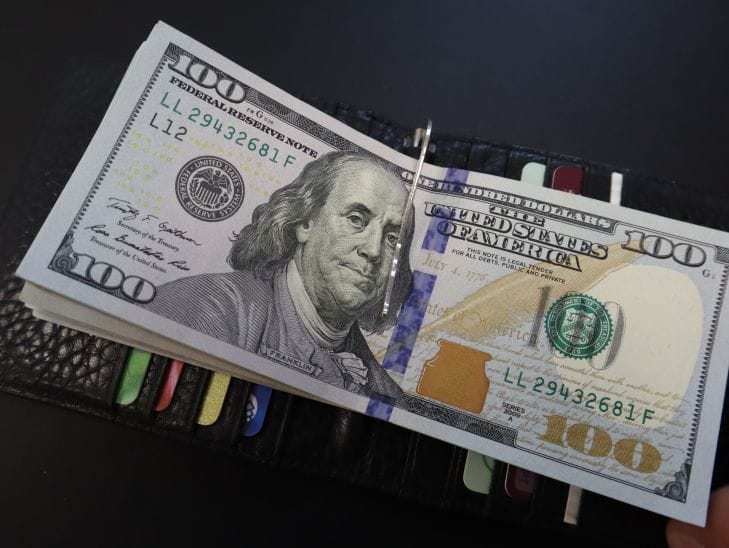- The "bucks" smelled like deer skins
- Every banknote is a drug artifact
- "In God We Trust" - a hidden blow to the USSR
- Dollars were darned like socks
- Women on dollars are the rarity of the century
- $100,000 Bill for the Mafia
- The Fed Prints $635 Million a Day
- Masonic symbols in plain sight
- Dollars eat… trees
- Dollar is the currency of Zimbabwe
They Won't Tell You This in History Class: 10 Surprising Facts About the Dollar
Do you think you know everything about "greenbacks"?
We bet that even the most advanced economists would be surprised to learn how many secrets the world's most popular currency hides.
The "bucks" smelled like deer skins
The slang name "bucks" comes from the word buckskin, a deer skin that colonists used as currency when trading with the Indians.
The irony is that today's "bucks" smell very different: a study in the journal PLOS ONE (2017) found bacteria, including those that cause pneumonia and staph, on 94% of the bills.
Every banknote is a drug artifact
Scientists at the University of Massachusetts have found traces of cocaine on 90% of dollars. The reason? The bills are used to snort drugs or count them in drug trafficking. Interestingly, there is almost no cocaine on one-dollar bills - they are replaced too often.

"In God We Trust" - a hidden blow to the USSR
The motto appeared on coins in 1864 at the initiative of Reverend Watkinson, to "indicate that God was on the side of the North" in the Civil War. But it was not until 1956, when President Eisenhower decided to contrast the dollar with the "godless" USSR, that it was officially adopted.
Dollars were darned like socks
In the 18th century, torn banknotes were allowed to be mended with a needle and thread.
"It was an attempt to salvage something from a depreciating currency," comments historian James MacGregor in Money: The Real History.
Women on dollars are the rarity of the century
In all of history, only Martha Washington , the wife of the first president, was honored to appear on a banknote in 1886. However, not a single African American woman has ever appeared on a banknote, which is still controversial.
0,000 Bill for the Mafia
In 1934, a banknote with a portrait of Woodrow Wilson was issued for interbank settlements. But gangsters loved it - it was "more profitable" to rob banks with such notes. Today, only 7 copies have survived, each of which is worth millions.
The Fed Prints 5 Million a Day
Every day 35 million new banknotes come into circulation, and the old ones are turned into... fertilizer.
“It’s ecological and symbolic: money is being returned to the earth,” economist Paul Krugman wrote ironically in The New York Times.
Masonic symbols in plain sight
The pyramid with the "All-Seeing Eye" on the one-dollar bill is a favorite theme of conspiracy theorists. Officially, it is a symbol of "strength and prosperity," but writer Dan Brown hints in The Da Vinci Code that the signs are connected to secret societies.
Dollars eat… trees
Defective banknotes are given to farmers, who use them as organic matter.
"Cellulose decomposes, enriching the soil," the Federal Reserve report confirms.
Dollar is the currency of Zimbabwe
It is officially used in Ecuador, El Salvador and Zimbabwe.
"It's a paradox that a country with hyperinflation trusts the currency of another country," notes a Bloomberg financial analyst.
